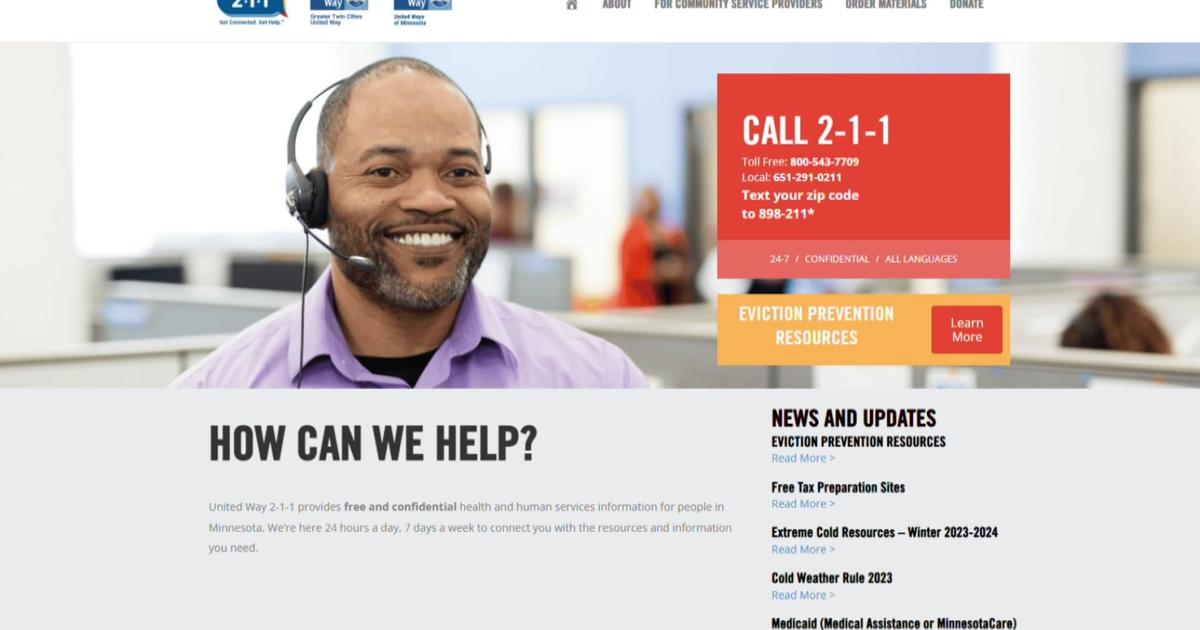Wife Of Twins Player Reveals Fight With Anxiety
MINNEAPOLIS (WCCO) – A racing heart. That panicked voice in your head. At some point, we've all likely suffered from that invisible brick wall known as anxiety.
One in ten people suffers from the disorder.
Yet, despite its prevalence, like most mental illnesses, it's rarely discussed.
As a baseball player's wife and mother to two girls, Alisha Perkins has a lot on her plate.
"It was overwhelming. I just didn't feel like myself anymore," she said.
The "it" she's talking about is anxiety, the physical and emotional response to perceived danger.
"It's all consuming and you just 'what if' yourself to death. You start 'what if this,' or 'what if that' and your adrenaline starts going and then you're shot!" Perkins said.
Like many moms, Perkins noticed that nagging voice got louder after she had kids. Things got worse when her husband, Twins pitcher Glen Perkins, was on the road.
Fearing someone would break into her home during an away series, Perkins needed her mom to stay with her, in the same bed.
"Logically I get it. I get that this sounds a little crazy and far-fetched, but there's the part of me saying it's not. You could be 'that one,'" Perkins said.
Almost seven million Americans have been diagnosed with anxiety.
Still, there's a stigma and mental illness is not widely talked about.
Frustrated the topic was taboo, Perkins wrote a two-part blog about it called "You Are Not Alone." In it, she shares her story and struggles with anxiety.
The National Alliance on Mental Illness says one in four adults will experience a mental illness. Anxiety is the most common diagnosis.
Doctors explain the condition like this: we all worry about getting into a car accident. But if your fear is so great you can't drive on the freeway or on a busy road, you may want to talk with someone.
NAMI Minnesota is trying to remove the cloak of silence around mental illness.
"They're similar feelings of fear," Sue Abderholden, executive director NAMI Minnesota, said. "But when they get too intense then start interfering with ability to move on with your life or do every day things, then we're moving into it becoming a mental illness."
For many, seeing a therapist or taking a pill isn't enough.
Doctors suggest a broad range of activities to help calm anxieties including finding purpose at work, exercising and embracing spirituality.
"What you want to do is be able to do is live with it, without it interfering with your daily activities," Abderholden said.
Perkins keeps simple reminders of her faith with her, sees a therapist regularly and found running helps her release those emotions.
The biggest step she's taken toward stopping the stigma and gaining peace of mind has come from sharing her story and encouraging others to start conversations of their own.
"It doesn't change people's perspective of you like you'd think it might," Perkins said. "I think, in fact, you may find out they know exactly what you're talking about."
NAMI Minnesota offers education and advocacy for mental illness. There are support groups available, and it will help find the right doctor for you.
For more information, visit NAMI Minnesota online, or call 651-645-2948 (toll free: 1-888-626-4435).



